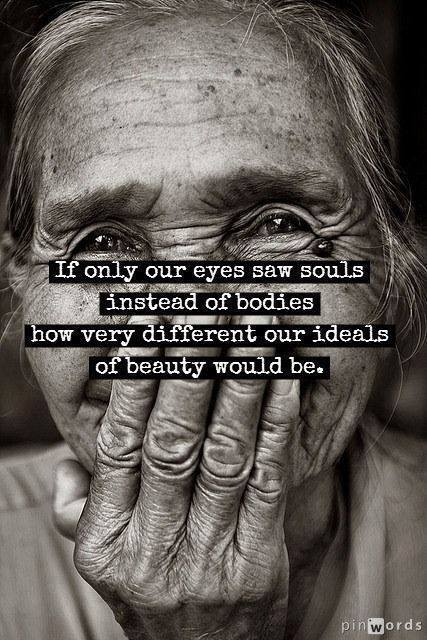| | TRANSCRIPT: G Yamazawa: I was so young. I don't even remember how old I was the first time I called someone gay. But I had to have been in elementary school. One day, my dad was picking me up and right before we pulled out of the parking lot, a girl waved at us with a smile like a vine. Even though she was the orchard that everyone picked on, she was still sweet and loved to be alive. When my dad asked me why I didn't wave back, I told him it was because she was gay. He looked at me with one of those religious stares, and every bit of Buddhism in his brow raised the question, "What does that even mean?" We all crack under peer pressure, but once you see that their earthquakes are coming from your faults, you realize how deep trembles are felt beneath the surface where things are left and forgotten. See, this was before poetry became my world. I noticed that words have gravity. I've seen them crush people from a first-person perspective. I felt a phrase fall out of my mouth like an atom bomb without the knowing the effects will radiate for years. I've loved a language that hates people, cracking jokes trying to shatter their mirrors just because I wasn't confident in my own reflection. I hated myself for the shape of my eyes so I became a bully. Because we all want to feel like Americans sometimes, and we all want straight spines. We all want straight spines to stand for something we believe in, but it's funny how flags and people have the same knack for politely waving at the ones they have forgotten. See, as early as elementary school, my parents planted a seed, and the lotus of Buddhism began to blossom in my brain. We had a pond in the backyard, and the flat water taught me of equality, that life is the one thing we all share. I was also taught how to pray. I've been memorizing mantras, enchanting sukhas out loud before the pledge of allegiance ever molested my lips. I was taught of cause and effect, how good is the ultimate truth that everything relies on, how the thought will turn to word as quickly as fuel becomes fire whether it's for burning down a house or for keeping a lover warm. The spark of an idea will always match the fuming language we decide to pull out of our mouth. But I forgot that the voice does the work of the Buddha, so why would I ever call someone gay before calling them beautiful? Why would I not praise the person that drinks the same water as me? Why would I lift my voice just to put someone else down? You see, us humans, we have a habit of overpowering and taking what doesn't belong to us. But I pray that we are making our way towards the moment when our tongues are the only thing left for us to conquer. And if there's one thing that I've learned being a poet is that it's not about what you have to say in your poem. It's about what you have to say when your poem is done. |
 Sourcer: hellogiggles.com On her third day at Oakleaf High School in Orange Park, Florida, Miranda Larkin was stopped by a teacher and sent to the nurse’s office. Once there, she was told to change out of the clothes she wore to school that day and put on the “dress-code-violation outfit.” Miranda was forced to wear the outfit—which consists of a neon yellow t-shirt with “DRESS CODE VIOLATION” printed across the front in big block letters and a pair off red sweatpants with the same message running down the leg—after wearing a skirt that didn’t reach her knees, violating the school’s dress code. “The school has said, ‘This is to embarrass you,’” Miranda told ABC News. “It’s supposed to embarrass you so you don’t do it again,” she said. “I got really upset and asked if I could call my mom. She was really upset, as well.” In Miranda’s mom, Dianna’s mind, the school’s actions were tantamount to bullying. “She’s a good kid,” Dianna told ABC. “She actually has a perfect disciplinary record. I’m not a rescue mom. I really do believe in punishing my kids if they do something wrong, but this is not about punishing kids. This is about humiliation.” In a statement to ABC News affiliate WJXX in Jacksonville, Florida, a school spokesperson stated that students who violate the dress code (skirts must be knee-length or longer) are given the options to stay in their clothes and have someone bring them a new outfit, serve suspension time or wear what’s being dubbed by media outlets as a “shame suit.” Miranda claims she wasn’t given any alternate options, according to ABC News. Dress codes are, generally speaking, largely arbitrary. One school might require that skirts reach your kneecaps, while another might say that anything beyond the edges of someone’s arms at side fingertips meets code. One might have a “no cleavage” rule, while another might use arbitrary markers such as finger widths, palms, or some other odd unit of measurement to determine how low one’s top can be. Dress codes are disproportionately aimed at curbing young women from expressing themselves freely, and in their creation, often cite fears of distracted male students as their rationale. Dress codes are often one of the first firm examples of body-shaming that young women face. Rather than instill a culture of respect, schools so very often tell these young women that it is their responsibility to not do something a male student might find distracting. In turn, this encourages a “boys will be boys” cultre in which boys are provided excuses for ogling or otherwise sexually harassing their female classmates without repercussion. Miranda had only moved to the area eight days before class began. She didn’t know that her skirt violated the school’s code. The puninshment doled out by the school served as the most public shaming of all — a scarlett letter, a cautionary tale, and a reminder that how a woman expresses herself through clothing or makeup will forever be used to blame her for the actions of someone else. If there’s ever to be hope that the world will no longer be so fueled by sexism, society needs to start breaking down these walls. Rather than developing and enforcing sexist dress codes for fear of someone being distracted, address those distracted. Someone’s existence—which includes their personality, their body, their intelligence, and yes, the way they express themselves in terms of fashion—cannot, in itself, be distracting. Let’s strive for a world where girls don’t have to curb who they are.
|
ForumPart of your mark comes from fair and respectful participation in online forums. Please respond to as many of these topics as you can. Show respect, be detailed and never make a statement you don't back up. Archives
November 2014
Categories
All
|

 RSS Feed
RSS Feed